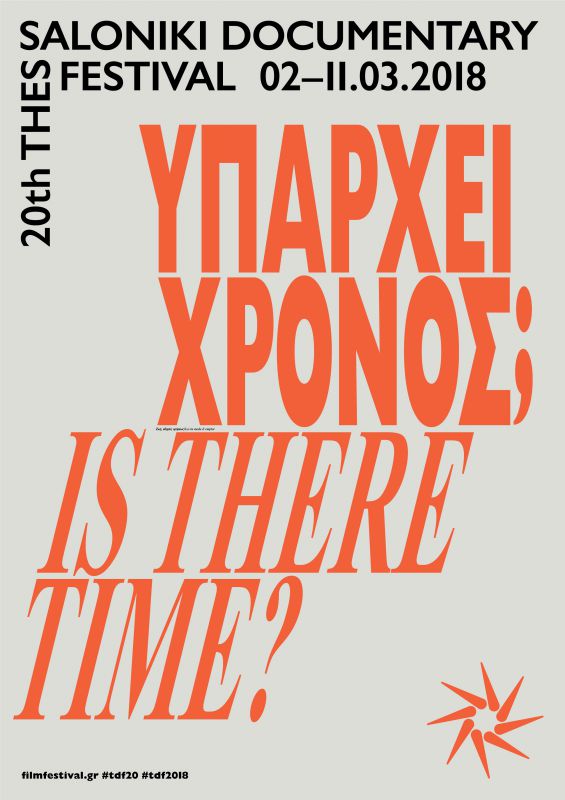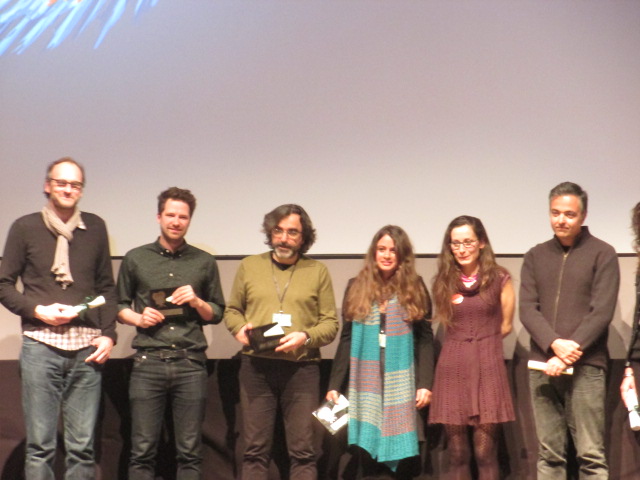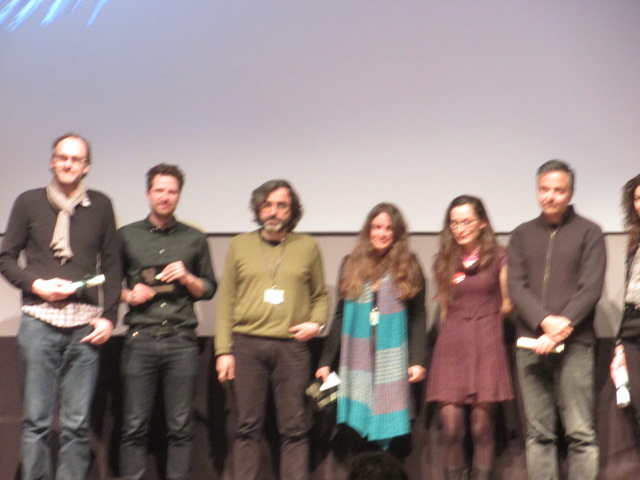|
|
||
|
Pro Tools
FILMFESTIVALS | 24/7 world wide coverageWelcome ! Enjoy the best of both worlds: Film & Festival News, exploring the best of the film festivals community. Launched in 1995, relentlessly connecting films to festivals, documenting and promoting festivals worldwide. Sorry for the interruption, we needed to correct and upgrade some modules. Working on a new website. For collaboration, editorial contributions, or publicity, please send us an email here. You need for put your full detail information if you want to be considered seriously. Thanks for understanding. User login |
PRESS CONFERENCE AT 13TH TDF
CONFERENCE In his welcoming speech, the TDF director Dimitris Eipides said: “As the 13th TDF draws to a close, the numbers are encouraging; there has been an important increase in audience attendance. In 2011, more than 100 Greek films were submitted, including some of the most important documentaries I have ever seen. I would like to believe that the Festival has played a part in the development of this genre, and I am hopeful that the films participating in our festival will keep raising the bar every year”. Talking about the documentary from a female perspective, Mrs. Patroni explained that she never felt she was working in a field dominated by men or that she was treated differently because of her sex. “The women present here today are not something different; all of us are identified with the Greek documentary”, said Patroni, adding that she disagrees with the idea that women filmmakers form a separate subgroup. Mrs. Malama highlighted the fact that “one - third of the films participating in this year’s festival were made by a woman, which is good news for the documentary genre. Glass ceilings are to be found everywhere in society, not only in the documentary field. The same winds of change operating at other levels of society are affecting our field as well. There is a difference between men and women, but it is one that has nothing to do with their different sex and everything to do with the fact that every individual is unique”. Another issue discussed by the panelists was what made them become involved with the documentary genre in the first place. “I cannot isolate one determining factor that led me to the documentary genre. As an anthropologist, I was interested in documenting, and this was a factor. I would never be able to make a fiction film. I tried to make more experimental documentaries, which caused quite a stir, because they dealt with taboo issues involving female sexuality. Perhaps I made this choice of theme because I am woman”, said Mrs. Stefani. Touching on the same issue, Katerina Patroni said: “I started out as a fiction filmmaker. During my studies, however, I saw an amazing film by Robert Flaherty and realized that a documentary can be a complete artistic creation. At some point I felt jealous watching films like the ones made by Eva Stefani, and I think this is also a reason I became involved in documentaries. For me, a documentary is not a depiction of reality, but a view to the world. Directors are not just recording the facts, since they are not neutral observers”. Mrs. Kontakos made a comparison between the American documentary market in which she had been active until she came to live and work in Greece, eight years ago. “Conditions here are very hard. We are facing problems all the time. What has changed is that documentaries are now highly valued by the audience. They no longer serve only as a step in the filmmaker’s career towards something else, for example a fiction film; they have intrinsic value as a genre. And of course festivals have also started screening documentaries”.
Mrs. Malama argued that the film market is not an open one. “Under these market conditions, television is the only medium left. In fact documentaries achieve high audience ratings when broadcast on TV. But funding is either limited or preferential in television. In the past, for example during the 80s, the documentary genre thrived in terms of the number of films produced, but the themes were often chosen on demand. For me, the pleasant surprise is the Thessaloniki Documentary Festival”, she said.
Mrs. Patroni believes there is an audience for documentaries; “the problem, however, is how to reach this audience. Very few people go to theaters to see a documentary”. Eva Stefani not only agreed, but confessed that “I am embarrassed to say this, but I also go to the cinema to see fiction films and not documentaries. I suppose this has to do with the entertainment aspect, which should not be underestimated. The truth is, however, that a documentary can be both meaningful and entertaining– it is not true what many people think, that a documentary is boring by definition”.
The audience took an active part in the discussion, raising many issues and posing a number of interesting questions to the panelists. Many members of the audience focused on the “talking heads” approach adopted by many modern documentary makers, and whether this approach serves or undermines the genre. 19.03.2011 | Thessaloniki's blog Cat. : Anthropologist Dimitris Eipides Director director , producer Documentary film Documentary film festivals Entertainment Entertainment Eva Stefani Film Film genres Greece Katerina Patroni Kyriaki Malama Person Career PRESS CONFERENCE AT 13TH TDF Quotation Robert Flaherty Social Issues Social Issues Technology Technology the Thessaloniki Documentary Festival Thessaloniki Documentary Festival Valery Kontakos
|
LinksThe Bulletin Board > The Bulletin Board Blog Following News Interview with EFM (Berlin) Director
Interview with IFTA Chairman (AFM)
Interview with Cannes Marche du Film Director
Filmfestivals.com dailies live coverage from > Live from India
Useful links for the indies: > Big files transfer
+ SUBSCRIBE to the weekly Newsletter DealsUser imagesAbout Thessaloniki Mcmahon Vanessa Mcmahon Vanessa Vanessa McMahon Covered the 13th and 14th, and 16th edition. Through its tributes, it focuses both on discovering filmmakers with a unique cinematic point of view, and on the internationally recognized for their contribution to documentary. Contributions from Buno Chatelin http://tdf.filmfestival.gr/default.aspx?lang=en-US&loc=6&page=760 View my profile Send me a message My festivalThe EditorUser contributions |





























